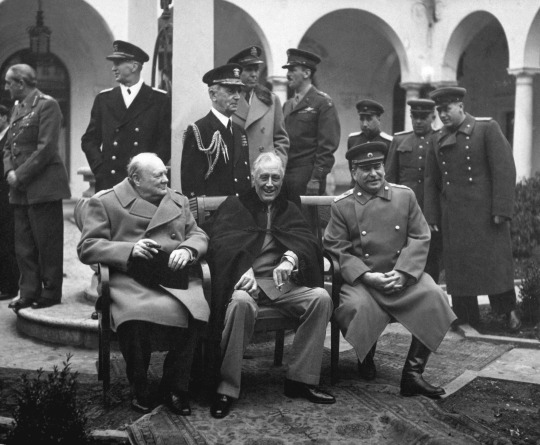#yalta conference
Text

Roosevelt looks so miserable in this photo
#history memes#history#ussr#british empire#britian#USA#america#soviet union#wwii history#world war 2#yalta conference#joseph stalin#winston churchill#franklin d. roosevelt#1940s photography#1940s#yalta
13 notes
·
View notes
Text
Stalin in Ottoman Anatolia: his Spiritual, Religious and Historical Quests
The Mithraic Trajectory of an Unknown Transcendentalist
Сталин в Османской Анатолии: его духовные, религиозные и исторические искания
Митраистская траектория неизвестного трансценденталиста

Table of Contents
I. The erroneous perception of Stalin among most people today
II. The erroneous perception of WW II by average people today
III. The true Yalta Conference
IV. The Big Game never ended
V. Good intentions and evil purposes
VI. Roosevelt & Stalin: like Abraham Lincoln & Alexander II
VII. The real, hidden Stalin: an experienced mystic
VIII. A Turkish ambassador speaks about Stalin living in Artvin and Istanbul
IX. Stalin in Ottoman Anatolia: 1911-1912
X. Turkish statesman Rıza Nur noted that Stalin understood Turkish
XI. Stalin's cultural background: distorted & unknown to most
XII. The Mithraic Iranian cultural heritage of Georgia & Stalin
XIII. The long, heavy shadow of the Sassanids
XIV. An indelible stamp on Islam: the Iranian Intermezzo
XV. The intertwined Islamic & Christian cultural heritage of Georgia, and Shota Rustaveli
XVI. Rustaveli's Russian translations and Stalin's pseudonyms
XVII. Archaeological excavations and Orientalist discoveries prior to Stalin's sojourn in Anatolia
XVIII. Stalin's textual sources of information about Mithra and the Mithraic mysteries
XIX. Spirituality, Religion, Eschatology, Soteriology, the Extinction of the Mankind, and Stalin
XX. Major themes of Stalin's spiritual quest in Anatolia – 1. Tauroctony and Crucifixion
XXI. Major themes of Stalin's spiritual quest in Anatolia – 2. Mithraic Trinity, Christian Trinity, Spirituality and Stalin
XXII. Major themes of Stalin's spiritual quest in Anatolia – 3. Solar nature of Mithraism / Immaculate birth from the rock
XXIII. How Stalin's Mithraic meditations in Anatolia formed his decision-making
1. Pontus' King Mithridates VI's wars with Rome
2. Cilicia's Mithraic Pirates in fight with Rome, the desecration of Greece, and Stalin
3. Did Stalin travel to visit the world's greatest Mithraic monument at Nemrut Dagh?
4. Stalin's Mithraic meditations and anti-sacerdotal stance
5. The Mithraic version of the Assyrian-Babylonian Gilgamesh: Verethragna, and his association with Heracles in Nemrut Dagh
6. Mithraic Anatolian Imperial Spirituality vs. Nordic Mythology: Stalin vs. Hitler
XXIV. Rome, New Rome, the Third Rome, and Stalin
XXV. Mithraism, Christianity, Stalin and the Antichrist

The idea that most of the people around the world have about Stalin is entirely false. This is due to the fact that atheists, materialists, Marxists-Leninists, liberal socialists, socialist-democrats, evolutionists and all the trash of Anglo-Saxon and Ashkenazi Khazarian pseudo-intellectuals and bogus-academics have first perceived, then interpreted, and last analyzed/presented Stalin and his historical role through the most erroneous, Trotskyist misunderstanding/distortion of the Georgian-origin Soviet statesman. But Stalin was an unconditional transcendentalist and a remarkable mystic.
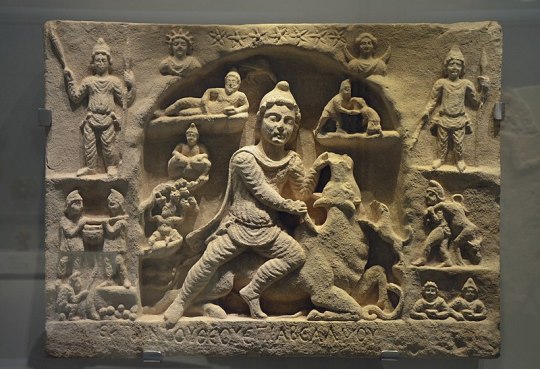
Mithraic Tauroctony from a Mithraeum in Syria (currently in the Israel museum in Jerusalem): a mythical-religious topic early conceived by evil forces as purely eschatological symbolism
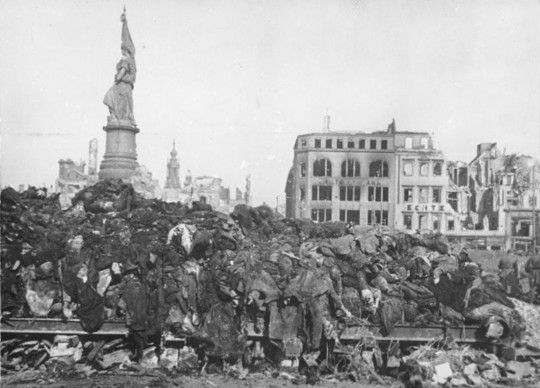
Human sacrifice: dead bodies wait for cremation in Dresden after the bombardment of the 'Allied' forces.
I. The erroneous perception of Stalin among most people today
According to this irrelevant story, Stalin (1878-1953) was a resolute materialist, a convinced Darwinist, a devoted Marxist-Leninist, and a heartless dictator who decimated entire nations, before purging the old guard of Communist-Bolshevik partisans, relocating populations, and sending millions to jail. There is only little truth in all this. In fact, Stalin was as realist as Kemal Ataturk; he therefore had to appear to others in the way he did in order to succeed Lenin and eliminate Trotsky. Many may agree with the last sentence, stating that this is part of the well-known History.
But there is also the 'Other History'; the one that is unknown, because it did not happen. This is, in other words, the negative reflection of the reality. All the same, because this 'other' or 'unknown' History did not happen, this does not mean that it was not attempted. And indeed many secret and known organizations and 'societies' tried to prepare several developments which finally did not occur. It is essential for a true Historian to know well these failed attempts; in fact, he only then understands History as the Absolute Sphere that contains the outcome of all the desires, feelings, thoughts and attempts of the humans.
---------------------
Continue reading the remaining 25700 words of the 30200-word article here:
Read and download the entire book in PDF here:
#Mithras#Mithra#Mehr#tauroctony#Anatolia#WW II#Yalta Conference#Roosevelt#Stalin#Abraham Lincoln#Alexander II#Big Game#Rıza Nur#Riza Nur#Ataturk#Iran#History of Iran#Georgia#Islam#Pontus#kingdom of Pontus#Rome#Mithraic pirates#Mithras pirates#Cilicia#Greece#Nemrut Dagh#Nemrut Mountain#Gilgamesh#Verathragna
9 notes
·
View notes
Text
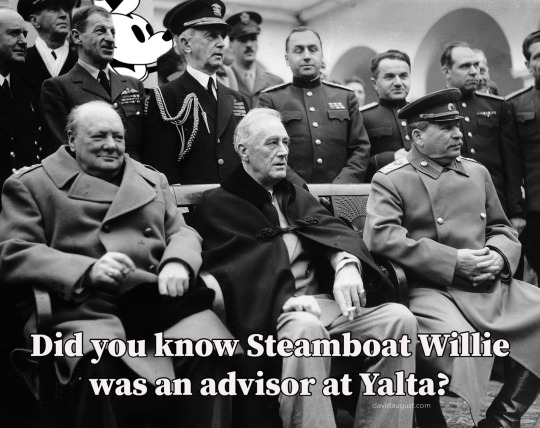
Steamboat Willie got involved with diplomacy. It’s said he and fellow actor Shirley Temple (who became Chief of Protocol of the United States) were good friends.
#steamboat willie#fdr#roosevelt#franklin roosevelt#franklin d. roosevelt#joseph stalin#winston churchill#yalta#yalta conference#wwii#ww2#diplomacy#peace#shirley temple
1 note
·
View note
Text
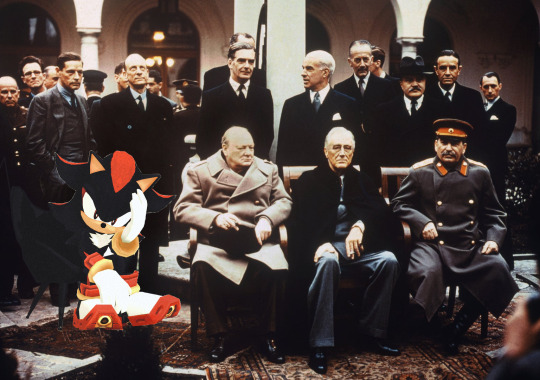
shadow the hedgehog at the yalta conference (1945)
4 notes
·
View notes
Text
I looked up a Polish musician on Spotify and the recs from the "This is..." playlist are GIRLS und PANZERS music, some Vietnamese musician, the classical composer Verdi, something called "Northern Spirits", Video Game Soundtracks, and i think some other anime.
...I don't think Spotify has any clue what to recommend here.
#(I saw Girls&Panzers get mentioned once while looking at r/traaa else I'm not sure I'd have any idea it existed)#though as the song in particular I was looking through pertains to Y/Jalta#it's not inconceivable that it could be connected to media dealing in some way with WWII#*as in the yalta conference#my Spotify queue tonight has been all over the place
2 notes
·
View notes
Text
i loove contemporary history
#i hear yalta conference 1945 my eyes go ♥o♥#i just love the complexity of it how you need to know 900 prior events to make sense of something how we still don't understand so much#it's just so fucking interesting#however do NOT talk to me about the goddamn middle ages or anything between roman imperors and the congress of vienna#i'd rather die#porco dio il feudalesimo mi sento male solo a pensarci
2 notes
·
View notes
Text
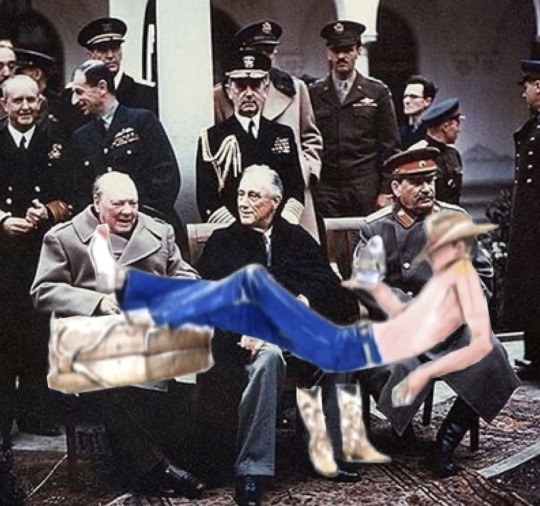
New pfp 😍😍 hey cowbones wyd in Crimea between the 4th and 11th of February in 1945
1 note
·
View note
Text

Monday, April 15, 2024
I am posting on time today! Today was long. I am tired but fulfilled. Once again my language practice and reading had to be done in the car to and from ballet, but it's okay. It happens that way sometimes. Good night!
Tasks Completed:
Geometry - Reviewed factorial + learned about permutation and combination formulas + practice
Lit and Comp II - Copied Unit 24 vocabulary + read Act 2, Scenes 2-3 and Act 3, Scene 1 of Much Ado About Nothing by William Shakespeare + read modern translation of same scenes + found a line that used word play and cited it + worked on my literary analysis for Emma (due Friday)
Spanish 2 - Reviewed vocabulary + listened to a story in Spanish + practiced spelling clothing words
Bible I - Read 1 Samuel 17:20-58
World History - Read about the Tehran, Yalta, and Potsdam conferences + created a chart with information about the three conferences
Biology with Lab - Read about viruses + looked at viruses on a scale + watched videos "Cell vs Virus", "Catching a Cold", and "Viral Life Cycle" + wrote steps of what a virus does and how the body responds
Foundations - Read more on thriftiness + completed next quiz on Read Theory + answered second question set about Sojourner Truth’s “Ain’t I a Woman?” speech
Piano - Practiced for one hour
Khan Academy - Built into coursework
CLEP - Completed Module 12 reading "Europe: 1918-1945" 13.10.3
Streaming - Watched Greatest Events of World War II in Color episode 9
Duolingo - Studied for 30 minutes (Spanish, French, Chinese) + completed daily quests
Reading - Read pages 184-222 of Divine Rivals by Rebecca Ross
Chores - Cleaned my bathroom + cleaned windows in my bedroom and in the study + took the trash and recycling out
Activities of the Day:
Personal Bible Study (1 Peter 5)
Volunteered for two hours at the library
Ballet
Contemporary
Journal/Mindfulness
What I’m Grateful for Today:
I am grateful for allowing myself to take a break from tumblr because I felt more on top of things today.
Quote of the Day:
Be happy for this moment. This moment in your life.
-Omar Khayyam
🎧Eight Piano Pieces Op. 76 - Johannes Brahms
#study blog#study inspiration#study motivation#studyblr#studyblr community#study community#study-with-aura
19 notes
·
View notes
Text
THIS DAY IN GAY HISTORY
based on: The White Crane Institute's 'Gay Wisdom', Gay Birthdays, Gay For Today, Famous GLBT, glbt-Gay Encylopedia, Today in Gay History, Wikipedia, and more … March 21



1804 – The Code Napoléon is introduced in France, Belgium, Luxembourg, and Monaco, maintaining the "hands-off" attitude of the government toward private, consensual sexual relations.


1901 – Gavin Arthur (d.1972) an astrologer and occultist, was born Chester Alan Arthur III, the grandson and namesake of the 21st President of the United States. He grew up in wealth, but did not pursue a career in the professions, choosing instead to join the Merchant Marines. He later panned for gold and sold newspapers.
In the 1930s he travelled widely and came to know many of the counterculture elite of his day. Among his acquaintances were pioneer sexologists Edward Carpenter, Havelock Ellis and Alfred Kinsey. He was unashamedly gay and a forerunner of gay activism. He helped Kinsey with his groundbreaking research into male sexuality.
In the 1950s he settled in San Francisco and devoted his time to astrology. He began to move in the alternative spirituality and sexuality community that first became known for its identification with beat Zen, and he became well-known as an astrological counsellor. He began to develop a perspective on astrology that, contrary to the mainstream of astrological writing, took account of homosexual and bisexual gender preferences. His ruminations culminated in 1966 with his major writing, The Circle of Sex.
Drawing on his reading of gay writers, Arthur concluded that sexuality needs to be separated from the single need to procreate.

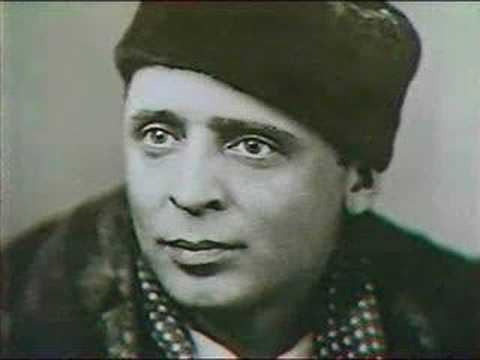
1903 – Vadim Kozin (d.1994) was a Russian tenor, and an openly homosexual man until 1934 when male homosexuality became a crime in USSR.
Vadim Alekseyevich Kozin was born the son of a merchant in Saint Petersburg. His mother was a gypsy and often sang in the local gypsy choir. Their house was frequently full of musicians, exposing Vadim to tradition from an early age.
He began to sing professionally in the 1920s, and gained success almost immediately. In the 1930s he moved to Moscow and began playing with the accompanist David Ashkenazi.
During World War II he served in the entertainment brigade and sang for Soviet troops.
In 1944, shortly before the birthday of Josef Stalin, the police chief Lavrenty Beria called him up and asked why his songs didn't involve Stalin. Kozin famously replied that songs about Stalin were not suited for tenor voices. In late 1944, Kozin was sentenced to five years in jail as part of the repression campaign against prominent Soviet performers and was sent to the Magadan labour camps because of his alleged homosexuality.
He was initially released in 1950 and was able to return to his singing career. Though released once again several years later, he was never officially rehabilitated and remained in exile in Magadan until his death. Speaking to journalists in 1982, he explained how he had been forced to tour the Kolyma camps: "The Politburo formed brigades which would, under surveillance, go on tours of the concentration camps and perform for the prisoners and the guards, including those of the highest rank."
In 1993, being interviewed by Theo Uittenbogaard in the TV documentary Gold – Lost in Siberia, he recalled how he was released from exile temporarily and flown into Yalta for a few hours, because Winston Churchill, unaware of Kozin's forced exile, had asked Stalin for the famous singer Vadim Kozin to perform, during a break in the Yalta Conference, held February 4–11, 1945.
His prison sentence deeply traumatized Kozin, leading to the cessation of his singing career. He even began burning his own records, to the point where his friends were forced to hide their own copies from him in order to preserve them. The Soviet government never officially rehabilitated him and his 90th birthday was celebrated in private among friends in Magadan. He died at the age of 91 in 1994.

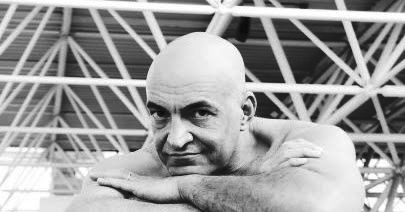
1961 – Greg Herren is an American writer and editor, who publishes work in a variety of genres, including mystery novels, young adult literature and erotica. He publishes work both as Greg Herren and under the pseudonym Todd Gregory.
New Orleans-based writer and journalist, Greg Herren has written extensively about the homosexual lifestyle, both in fiction and nonfiction. His work has appeared in a variety of periodicals and anthologies, and his fiction includes an array of horror stories and mysteries, all featuring homosexual characters.
His novel Murder in the Rue Chartres won a Lambda Literary Award in the Gay Mystery category at the 2008 Lambda Literary Awards, and his anthology Love, Bourbon Street: Reflections of New Orleans, co-edited with Paul J. Willis, won in the anthologies category at the 2007 Lambda Literary Awards.
He was also nominated in the mystery category in 2003 for Murder in the Rue Dauphine, in 2004 for Bourbon Street Blues, in 2005 for Jackson Square Jazz, in 2007 for Mardi Gras Mambo, in 2010 for Murder in the Garden District and in 2011 for Vieux Carré Voodoo, in the anthologies category in 2005 for Shadows of the Night: Queer Tales of the Uncanny and Unusual and in the science fiction, fantasy and horror category in 2013 for the anthology Night Shadows: Queer Horror, co-edited with J.M. Redmann. As Todd Gregory, he was also nominated in the Gay Erotica category in 2010 for the anthology Rough Trade: Dangerous Gay Erotica and in 2013 for the anthology Raising Hell: Demonic Gay Erotica.
Openly gay, Herren lives in New Orleans, Louisiana, where he also works as an HIV/AIDS counselor and educator. He was also a co-founder of the Saints and Sinners Literary Festival.
While not erotic, Herren's mystery novels feature homosexual characters and cater to that audience. His choices have proven controversial on occasion. In 2005, he was invited to speak to the Gay-Straight Alliance at Manchester High School in Chesterfield County, Virginia. However, the superintendent and the school board later canceled his appearance under pressure from the Virginia Family Policy Network, which had organized an e-mail campaign claiming that Herren wrote gay pornography and would not be an appropriate speaker. Herren commented that only a small portion of his writing has erotic overtones, and that, regardless, he hadn't planned to discuss his sexual orientation during his presentation. He said: "I was planning on talking about being a professional writer.… I was not planning on talking about sex." and was defended by the American Civil Liberties Union.

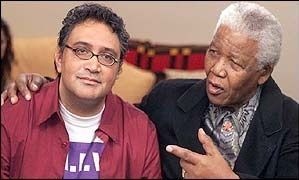
1962 – South African activist Zackie Achmat has been a pivotal figure in his country's response to AIDS. His refusal, from 1999 to 2003, to avail himself of anti-retroviral drugs until they became affordable for the poor brought him recognition from health and human rights advocates worldwide.
In a 1995 autobiographical essay, provocatively entitled "My Childhood as an Adult Molester," he describes the conditions of life for South Africa's "coloureds" during the apartheid era, when he suffered discrimination and poverty. Although of Malaysian extraction, he identified with the country's black population, who were subject to even worse treatment.
The essay also offers a rare portrait of gay male life in the colored community. By age ten, Achmat was aware of his homosexuality. An eager reader, he received a special pass to use a town library ordinarily reserved for whites. However, its restrooms were still off limits. While seeking available facilities, he discovered restroom sex with adult men and took up the life of a "moffie," South African slang for a gay man.
Achmat's political activism began with the 1976 student uprisings against apartheid. He organized youth resistance groups for the African National Congress (ANC) while it was still banned, and he was jailed several times.
In the 1990s apartheid was repealed. The ANC came to power under the charismatic leadership of Nelson Mandela in 1994. Achmat was one of the founders of the National Coalition for Gay and Lesbian Equality in 1994, which advocated for gay rights in the new constitution. In 1996 South Africa became the first nation to include protections against discrimination on the basis of sexual orientation in its Bill of Rights. In 1998 all remaining local sodomy laws were declared unconstitutional.
Achmat co-founded the Treatment Action Campaign (TAC) in 1998 to address the AIDS epidemic. South Africa then had the highest number of AIDS cases in the world, a figure that would eventually grow to over 5 million. To put a human face on the crisis, Achmat publicly announced his own HIV-positive status and vowed not to take anti-retroviral drugs until they were available to all South Africans. As he later told his group, "The majority of people with HIV—they don't have a face, they don't have a political understanding. They're desperate, they're poor, they're alone . . . I can't look them in the eye when I take medicines and I know they're going to die."
Enduring frequent bouts of illness, Achmat spearheaded TAC's civil disobedience campaign to force the government to promote the use of ARVs. TAC and other groups sued the government to provide Nevirapine to curb mother-to-newborn transmission of HIV. TAC won the support of former president Mandela, who met with Achmat and declared him a national hero.
In August 2003, anticipating a victory, Achmat resumed treatment in time to reverse his declining health. In November, South Africa's Ministry of Health finally agreed to a government-funded program to provide ARVs on a wide scale. Although there have been other obstacles to effective treatment for HIV infection in South Africa, TAC has made steady progress
On 5 January 2008, Achmat married his same-sex partner and fellow activist Dalli Weyers at a ceremony in the Cape Town suburb of Lakeside. The ceremony was attended by then Mayor Helen Zille and presided over by Supreme Court of Appeal judge Edwin Cameron. The couple divorced amicably in June 2011

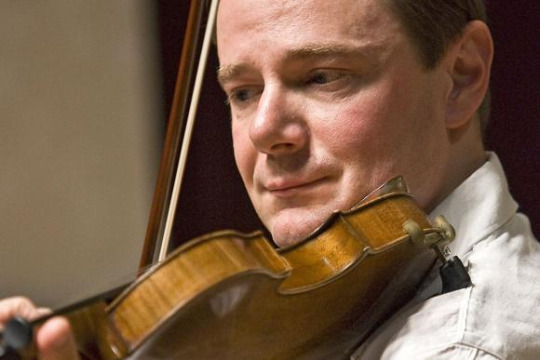
1967 – Philippe Honoré is a French violinist who has been a regular recitalist in France and the United Kingdom. He was appointed Violin Professor at the Royal Academy of Music in London September 2012. He has performed widely in broadcast recitals on French radio and television.
Philippe Honoré divides his busy schedule between solo work, chamber music, as well as leading orchestras. He was a principal player with the Philharmonia Orchestra (from 2005 to 2011). After having received top honours from the Paris Conservatoire and the Royal Academy of Music in London, he was made Lauréat of the Yehudi Menuhin Foundation of France in 1992. He was awarded an Honorary Associateship by the Royal Academy of Music in 2001.
Honoré is a former member of the Vellinger Quartet and a founder member of the Mobius ensemble. As such, he has appeared in some of the most prestigious venues abroad (such as Amsterdam's Concertgebouw) and in the UK (such as the Wigmore Hall and the South Bank in London). He has appeared as a soloist performing Beethoven, Mozart, Bach and Vivaldi concerti, as well as Ravel's Tzigane.
Philippe regularly appears as guest leader with some of the UK's best orchestras. He has made numerous solo and chamber music recordings. His solo violin performances on the Decca album An Equal Music are regularly featured on both Classic FM and Radio 3. The novel of that name by the author Vikram Seth was inspired by and dedicated to him. Vikram Seth and he were at one time lovers in a ten-year relationship.
Philippe's collaboration with the composer Alec Roth over a recent four-year project earned him great critical acclaim. The performances took place at the Salisbury, Chelsea, and The Lichfield Festival. BBC Radio 3 recorded and broadcast these annual concerts, in which, in addition to the world premières of Roth's work, Philippe also played solo Bach and Ysaÿe sonatas. The Times described his account of Roth's solo work in 2007 as “magically played”. A studio recording of Alec Roth's Ponticelli for solo violin, played by Philippe, was released by Signum records in November 2011.


1981 – Brandon Scott Sessoms, best known as B. Scott, born in Franklin, Virginia, is an American television personality, radio show host and internet celebrity who is known for his YouTube videoblogs and website LoveBScott.com. He is also a contributing editor to The Glam Network, and an Ebony Magazine advice columnist.
Scott, who is a gender non-conforming androsexual, has become a popular internet personality through his video blogging and his website, LoveBScott.com. Scott's internet presence has contributed to his ability to interview celebrities such as Mariah Carey, Ne-Yo, Chaka Khan, Aubrey O'Day and Ashanti. Following his Internet-based success, he has appeared in mainstream media, making appearances on The Tyra Banks Show, and shows on Oxygen and BET.
Scott was born to parents of African-American, Irish, Jewish and Meherrin ancestry. As a teenager Scott was selected to attend the North Carolina School of Science and Mathematics (NCSSM), a two-year public residential high school.
After graduating from NCSSM in 1999, he attended University of North Carolina and came out as gay and transgender in his sophomore year. He said in a video blog that he had feelings and was questioning previously but when he was a sophomore pre-med, he got his first romantic kiss from a man and realized he was attracted to men, and that he was using the intense pre-med education to distract himself from his sexuality. He stopped efforts to become a physician from the realization that it was a self-invented distraction. Scott graduated in 2002 with a B.A. in Psychology
Scott moved to Washington, DC where he briefly practiced as a licensed realtor in the Capitol Hill area. In June 2005, Scott moved to Los Angeles, California where he continued his work in real estate and as an interior designer. It was during this time that he began his interest in the entertainment industry, while briefly working in print ads as a fashion model.
On January 1, 2007, Scott launched LoveBScott.com which primarily focuses on pop culture: celebrity news, fashion, music, nightlife, and miscellaneous entertainment. The name lovebscott.com was selected in an effort to give his website a readily-identifiable personality with the mission of conveying a positive outlook.
In May 2007, B. Scott started incorporating YouTube videos into his website to personally connect with readers. The videos include personal observations, celebrity news, musical performances, political commentary, interviews and messages of encouragement to the audience. The videos are produced out of his Los Angeles residence. His YouTube channel has over 90,000 subscribers, and has won numerous awards for viewership and subscriptions


1987 – Finland: Pekka Haavisto the first openly gay member of Finnish parliament, takes office. He is a Finnish politician and minister representing the Green League. He returned to the Finnish Parliament in the Finnish parliamentary election of March 2007 after an absence of 12 years and was re-elected again in 2011. In October 2013 he was appointed as the Minister for International Development after Heidi Hautala resigned from the job. He has also been a member of the Helsinki City Council.


2018 – San Francisco renames Terminal 1 at the San Francisco International Airport after slain LGBT supervisor Harvey Milk and installs artwork memorializing the civil rights icon. The name change was first introduced in 2013 by then-Supervisor David Campos who had initially hoped to name the entire airport after Milk but the proposal met with opposition. Instead, an airport naming committee was established, which recently recommended naming SFO’s Terminal 1 after Milk.


11 notes
·
View notes
Text
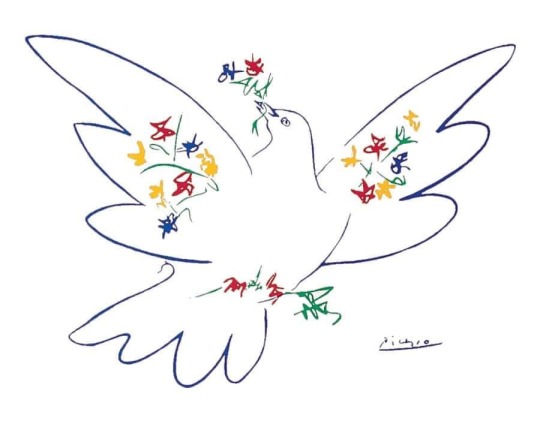
Dove of Peace by Picasso
* * * *
World peace is not a party question. [...] The structure of world peace cannot be the work of one man, or one party, or one Nation. It cannot be just an American peace, or a British peace, or a Russian, a French, or a Chinese peace. It cannot be a peace of large Nations- or of small Nations. It must be a peace which rests on the cooperative effort of the whole world. It cannot be a structure of complete perfection at first. But it can be a peace—and it will be a peace—based on the sound and just principles of the Atlantic Charter— on the concept of the dignity of the human being—and on the guarantees of tolerance and freedom of religious worship. [...] We shall have to take the responsibility for world collaboration, or we shall have to bear the responsibility for another world conflict. [...] Peace can endure only so long as humanity really insists upon it, and is willing to work for it—and sacrifice for it.
—Franklin D Roosevelt, Address to Congress concerning the Yalta Conference, Mar 1, 1945
13 notes
·
View notes
Text
As Russia’s war against Ukraine approaches its third winter, there is still no end in sight. The drip feed of Western military aid is enough for Ukraine to keep fighting but insufficient to liberate all its territory. At the same time, despite continued popular support for Kyiv’s cause in Western countries, there is plenty of talk about Western war fatigue, with increasing behind-the-scenes debate about a possible compromise to end or freeze the war.
A compromise would be premature for a number of familiar reasons. First, neither side is ready for serious negotiations. Regaining control over Ukraine may not be existential for Russia’s survival, as Russian President Vladimir Putin has claimed, but it could very well become a matter of life and death for Putin himself. For Ukraine, the fight is existential, and Western leaders have said again and again that it is for Ukraine to decide when to negotiate and on what conditions. That mantra is flawed, however, since we already know that Ukraine wants to keep fighting. By holding back on crucial weapons deliveries, Western countries are partly responsible for Ukraine not advancing as fast as it and its supporters would wish.
Second, violence in Russian-occupied territories will not stop as long as these territories remain under Moscow’s control. Freezing the conflict is therefore a non-starter for the Ukrainians who have seen the horrors perpetrated by Russians in Bucha, Irpin, and countless other towns and villages. This is well understood by Ukraine’s neighbors, which have their own experience of Russian and Soviet occupation. It means living under fear, unfreedom, and the constant threat of violence.
These arguments against seeking a settlement any time soon will be familiar to readers following the war. Less discussed—but much more fundamental for all of Europe—is what a settlement would mean for the future European security order. If the war were frozen, not only would Russia be rewarded for its attack. It would also hold on to its goal of fundamentally revising the European security order and reestablishing its sphere of influence.
It should be very clear that Moscow’s understanding of the principles and norms of European security is incompatible with Western views. As we can see in Ukraine, the Kremlin equates security with control, which has deep roots in Russian history and foreign policy. This is unlikely to change in the foreseeable future.
The tradition of Russia as a land-hungry empire goes back in a straight line to medieval Muscovy, which transformed into an expansionist state under the rule of Ivan the Terrible in the 16th century. Ivan, also known for his cruelty in torturing and massacring his own people, has been rehabilitated and celebrated under Putin’s rule, while Putin himself has adopted another torture-loving Russian empire builder, Peter the Great, as his role model.
Another key Russian foreign-policy tradition is the idea that the European security order should be based on agreements among the major powers over the heads of smaller ones. Since 2014, the Kremlin has repeatedly made references to the Congress of Vienna, which redrew the map of Europe in the early 1800s, and the Yalta Conference, the British-Soviet-U.S. meeting in February 1945 that divided Europe into two spheres of influence. From the Russian perspective, both agreements laid the foundation for decades-long stability. The price of that stability, however, is painfully known to the countries affected by Russian domination. The Vienna agreement wiped Poland off the map as a sovereign state for a century, and Yalta doomed half of Europe to more than 40 years of Soviet occupation and totalitarian rule.
Europe’s post-Cold War order has brought unprecedented levels of freedom, sovereignty, and prosperity to Russia’s western neighbors. Most of the former Eastern Bloc countries used their sovereignty to make a decisive turn to the West. Among the former Soviet republics, the Baltic states’ Western turn was fast and determined; Ukraine, Georgia, and Moldova tried to follow later and are still struggling for the right to choose their future place in Europe, including membership in the European Union. The EU’s decision-making structures underpin a fundamentally different order compared with being part of a Russian-controlled zone: The bloc gives substantial power to smaller states, even as members delegate some aspects of sovereignty to supranational institutions. Staying in the gray zone between Russia and the EU, as Ukraine has done, proved to be the least stable option.
Russia never felt comfortable with post-Cold War developments in European security. It frequently complained about not being treated as an equal by the West—yet Russia’s and Europe’s definitions of equality are very different. For Russia, it means being on par with other great powers, notably the United States, and not with its sovereign neighbors, whose agency it has consistently denied. Because it does not see them as equals, Moscow also has little interest in what Berlin or Paris has to say, let alone Brussels. That clouds every aspect of how Russia views its neighbors. When hundreds of thousands of Ukrainians took to the streets during the 2004 Orange Revolution to protest against their corrupt and dishonest government—and again during the Maidan Revolution in late 2013 and early 2014—all Moscow could see was a supposed U.S. plot to weaken Russia.
In 2009, then-Russian President Dmitry Medvedev proposed a new European security treaty in an attempt to defend what Russia considered its legitimate security interests, now allegedly being trod on by the West. Using code language such as “indivisibility of security,” what Moscow really seemed to seek was to confine NATO to the Cold War-era West and gain veto right over the alliance’s decisions if Russia considered them contrary to its very different definition of security.
In December 2021, as Russian forces were massing to invade Ukraine, the Kremlin made a renewed attempt to promote its vision of a European security order in two documents addressed to NATO and the United States. This time the ambiguity was gone and the revisionist aims clear: a full restoration of Moscow’s Cold War-era sphere of influence and the pushback of NATO’s presence in Europe to the line before its eastward expansion in the 1990s. These aims remain unchanged and reflect Russia’s long-term strategic thinking. Western efforts since the Cold War to build a common European order with Russia have clearly failed.
If Russia achieves its strategic goal of reestablishing control over Ukraine, even in part, it will ratify Russia’s efforts to impose its vision of order on its European neighbors. But even if Russia is defeated and has to leave all occupied territories in Ukraine, it will not easily give up its centuries-old understanding of itself as an empire and major power entitled to privileged rights in its sphere of influence. Unlike some empires that were wound down in the past—such as Nazi Germany and imperial Japan—Russia will not be totally defeated. It will not be occupied by foreign powers or be forced to go through a profound system change. Russia’s imminent transformation to a status quo power that accepts its post-Cold War place in Europe, let alone further enlargement of the EU and NATO, is therefore unlikely.
Former U.S. National Security Advisor Zbigniew Brzezinski famously argued in the 1990s that Russia cannot be an empire without Ukraine. Russian propagandists claim that Russia can only exist as an empire or not exist at all. Rejecting this claim will be an essential precondition for a post-imperial Russia to emerge.
Another precondition will be for Russia to acknowledge its neighbors as sovereign states and not mere puppets doing Washington’s bidding. Where the Kremlin—echoed by so-called realists in the West—is profoundly wrong with regard to its Ukraine war is the idea that world history is written by the major powers. If that were true, the Baltic states, Finland, Poland, and Ukraine would have no reason to exist today as sovereign states. One of the big unintended consequences of Russia’s invasion of Ukraine is that it has demonstrated and strengthened the agency of Russia’s neighbors. A new power bloc in NATO now stretches from Scandinavia to the Black Sea. Poland and Ukraine are becoming leading military powers in Europe. Their contribution to European defense will be much needed in coming years and decades.
We should not expect a common understanding between the West and Russia on European security to emerge anytime soon—and certainly not as part of a negotiated agreement that would at least partially reward Russia for its dismemberment of Ukraine. It is therefore necessary to envisage a future European security order not with Russia but against it, aimed at deterring further Russian threats and defending European democracies against the Kremlin’s authoritarian, revisionist, and imperialist ambitions.
This would be a dual order similar in some ways to the Cold War era. Then, Western democracies created their own liberal rules-based structures, notably NATO and the EU, while pursuing a containment policy against the Soviet Union and engaging in ideological, economic, military, and technological competition with the Eastern Bloc. Such a new European order would, however, be inherently unstable, not least because the global context has profoundly changed since the Cold War. The United States’ commitment to European security is undermined by both domestic political turbulence and a geostrategic environment where the main U.S. competitor is now China, not Russia. At the same time, the world is no longer bipolar but has multiple competing and interconnected centers of power.
In spite of these changes, the future European order will most likely be characterized by a long-term Russian threat and an antagonistic relationship with Moscow, much as during the Cold War. Russia will continue to reject a new balance of power that shrinks its former Soviet and tsarist sphere of influence, while the West will continue to reject the very principle of spheres of influence. Russia would seek to revise the balance of power as soon as it rebuilds its military capability. In order to make the new order in Europe more sustainable, the West will need to pursue a proactive containment policy, including credible deterrence and defense, full integration of Ukraine and other countries in NATO and the EU, and restrictions on Russia’s ability to restore its military strength.
No matter where one stands on negotiations between Russia and Ukraine, the fundamental question of Europe’s future security order cannot be ignored.
12 notes
·
View notes
Text
Literally one of my favorite things in French Revolutionary scholarship is when in the middle of an academic paper, you’re reading about Herbert and Robespierre and Danton and Saint-Just and then you just get Camille.
In terms of more modern political figures, this would be like if in WWII scholarship we had Stalin and Churchill and De Gaulle and then Frank. And everyone called him Frank so intimately and consistently in life that now historians have the same kind of familiarity with him in their work. Ah yes we all remember when Frank attended the Yalta Conference. What was our guy Frank thinking, what was he up to?
Honestly I have the same reaction to hearing Desmoulins as I do when my wife calls me Emily instead of babe. Like who the fuck is that, I don’t know her.
#welcome to my blog new followers this is the kind of prime rib content you're going to get here#but like camille desmoulins was a pisces he was on a first name basis with everyone#in that you couldn't help but be like 'there goes an adult teen and it seems weird to call him sir'#I have seen the past and I foresee the future
90 notes
·
View notes
Text
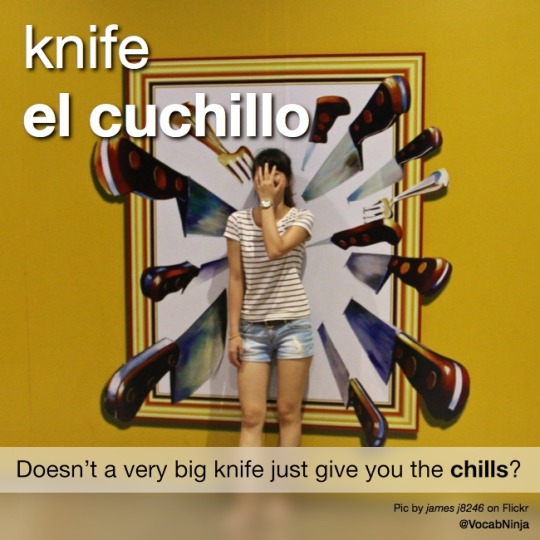
knife
el cuchillo
Doesn’t a very big knife just give you the chills?
Imagine being stopped at night by a guy in the street holding a knife, and saying: “I could chill you.”
At the Yalta Conference (at the end of WW2) Winston Churchill threw a big knife on the table and said: “And know you’re all gonna listen very carefully!”
That’s not a knife. THIS is a knife.
Eso no es un cuchillo. ESTO es un cuchillo.
youtube
Picture by james j8246 on Flickr
#knife#chills#to chill#churchill#winston churchill#spanish#vocab#vocabulary#español#hint#mnemonic#wotd#word of the day#Youtube
7 notes
·
View notes
Text
How did stupid and weak France become a permanent member of the United Nations?

General Gamelin
At the beginning of WW2, France's borders were easily breached by Nazi Germany and it quickly surrendered. The reason for this was that Maurice Gustave Gamelin, who was in charge of border security on the Western Front, was suffering from ``cerebral syphilis'' and could not make sound decisions. The French military is stupid and foolish for giving responsibility to such a general. In the blink of an eye, they surrendered and a Vichy puppet government was established.
Full of pride, De Gaulle fled to England, supported the resistance movement through radio broadcasts, and apparently fought in France under the protection of the British army. At that time, France was on the same level as Belgium, the Netherlands, and Greece, and there was no sign that it would later become a permanent member of the United Nations.
It is only natural that the three countries that virtually defeated Nazi Germany and held the Yalta Conference--the United States, Great Britain, and the Soviet Union--determined the postwar world order. Everything was decided through their thoughts and negotiations. Of the two remaining permanent members, China was chosen first. Looking back, it is surprising that the Soviet Union initially opposed China's admission as a permanent member of the Security Council. France is the last. In this case, it was decided that including at least one European power would be better, regardless of Franklin Roosevelt's rift with de Gaulle. This is regardless of the fact that France is actually a stupid and weak country.
However, as a Japanese person, I find it unreasonable that China and France, who cannot be described as ``victors'' in WW2, have become permanent members of the United Nations Security Council.
Rei Morishita
間抜けで弱いフランスが何故国連常任理事国になれたのか?
WW2初頭、フランスはナチスドイツに軽々と国境線を破られ、早々と降伏した。その理由は西部戦線の国境警備責任者だったMaurice Gustave Gamelinが「脳梅毒」に冒されていて、正常な判断が出来なかったことにある。こんな将軍に責任を負わせていたフランス軍部はバカで間抜けである。そしてあれよあれよという間に降伏して、ヴィシー傀儡政権が出来た。
プライドだけは高いドゴールは、イギリスに逃げて、ラジオ放送でレジスタンス運動を支援したり、イギリス軍の庇護のもと、フランスで戦ったりしたらしい。その当時、フランスはベルギー、オランダ、ギリシャと同一線上にあり、のちに国連常任理事国となる予兆は微塵もなかった。
ナチスドイツに実質的に勝利し、ヤルタ会談を行った3国――アメリカ、イギリス、ソヴィエトが戦後世界秩序を決定したのは当然である。全ては彼らの思惑と交渉の中で決まっていった。常任理事国の残り2国のうち、中国がまず決まった。今から思うと意外なことに、中国の常任理事国入りには、ソヴィエトが当初反対していた。フランスが最後。この場合、フランクリン・ルーズベルトがドゴールと不仲であったことは無関係に、ヨーロッパの大国を一国は入れたほうが良いという判断で決まった。実際のフランスが間抜けで弱い国であることとは無関係に、である。
もっとも、日本人の私としては、お世辞にもWW2で「勝った」とは言えない中国、フランスが常任理事国になったことに、理不尽さを感じないでもない。
#France#permanent member of the United Nations#rei morishita#Gamelin#cerebral syphilis#De Gaulle#China#USA#Britain#Soviet Union#European power#WW2#Japan
5 notes
·
View notes
Photo
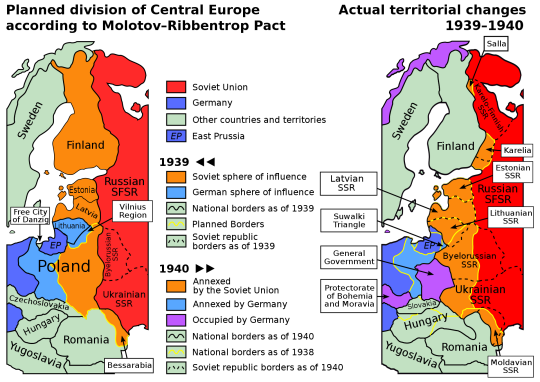
The Soviet invasion of Poland was a military operation by the Soviet Union without a formal declaration of war. On 17 September 1939, the Soviet Union invaded Poland from the east, sixteen days after Germany invaded Poland from the west. Subsequent military operations lasted for the following 20 days and ended on 6 October 1939 with the two-way division and annexation of the entire territory of the Second Polish Republic by Nazi Germany and the Soviet Union.[7] This division is sometimes called the Fourth Partition of Poland. The Soviet (as well as German) invasion of Poland was indirectly indicated in the "secret protocol" of the Molotov–Ribbentrop Pact signed on 23 August 1939, which divided Poland into "spheres of influence" of the two powers.[8] German and Soviet cooperation in the invasion of Poland has been described as co-belligerence.[9][10]
The Red Army, which vastly outnumbered the Polish defenders, achieved its targets encountering only limited resistance. Some 320,000 Poles were made prisoners of war.[4][11] The campaign of mass persecution in the newly acquired areas began immediately. In November 1939 the Soviet government annexed the entire Polish territory under its control. Some 13.5 million Polish citizens who fell under the military occupation were made Soviet subjects following show elections conducted by the NKVD secret police in an atmosphere of terror, the results of which were used to legitimize the use of force. A Soviet campaign of political murders and other forms of repression, targeting Polish figures of authority such as military officers, police and priests, began with a wave of arrests and summary executions.[Note 5][15][16] The Soviet NKVD sent hundreds of thousands of people from eastern Poland to Siberia and other remote parts of the Soviet Union in four major waves of deportation between 1939 and 1941.[Note 6] Soviet forces occupied eastern Poland until the summer of 1941, when Germany terminated its earlier pact with the Soviet Union and invaded the Soviet Union under the code name Operation Barbarossa. The area was under German occupation until the Red Army reconquered it in the summer of 1944. An agreement at the Yalta Conference permitted the Soviet Union to annex territories close to the Curzon Line (which almost coincided with all of their Molotov–Ribbentrop Pact portion of the Second Polish Republic), compensating the Polish People's Republic with the greater southern part of East Prussia and territories east of the Oder–Neisse line.[19] The Soviet Union appended the annexed territories to the Ukrainian, Byelorussian and Lithuanian Soviet Socialist Republics.[19]
After the end of World War II in Europe, the Soviet Union signed a Polish–Soviet border agreement with the new, internationally recognized Polish Provisional Government of National Unity on 16 August 1945. This agreement recognized the status quo as the new official border between the two countries, with the exception of the region around Białystok and a minor part of Galicia east of the San River around Przemyśl, which were later returned to Poland.
https://en.wikipedia.org/wiki/Soviet_invasion_of_Poland
2 notes
·
View notes
